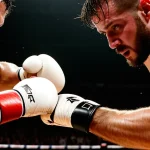Understanding Alternative Sports in the UK
Alternative sports UK refers to non-traditional sports that differ from mainstream activities like football or cricket. These sports often emphasize creativity, individuality, and community rather than large-scale competition. As they grow in popularity, alternative sports UK are reshaping the sporting landscape, especially among younger generations seeking more inclusive and dynamic experiences.
Examples of alternative sports UK include skateboarding, ultimate frisbee, parkour, and roller derby. These sports often combine physical fitness with artistic expression or teamwork in new ways, appealing to diverse participants. For instance, skateboarding involves skill and style on urban terrains, while ultimate frisbee is a fast-paced team sport emphasizing fair play.
This might interest you : How do local communities support lesser-known sports in the UK?
The key distinction between alternative and traditional sports lies in structure and cultural perception. Traditional sports UK generally have long-established rules, professional leagues, and widespread media coverage. In contrast, alternative sports often develop in grassroots settings and foster communities focused on innovation and social connection.
Recognizing these differences helps appreciate the vibrant variety within the UK’s sporting culture and encourages exploration of emerging sports that offer fresh challenges and social engagement.
Also to read : How Can the Latest Developments in UK Motorsport Impact Driver Safety?
Teamwork and Cooperation in Alternative Sports
Teamwork in alternative sports plays a pivotal role in nurturing cooperation skills essential for effective group dynamics. Unlike conventional individual sports, many alternative sports rely heavily on group activities UK-based communities enthusiastically engage with. These sports are designed with unique structures that inherently require participants to collaborate, strategise, and communicate fluidly.
In alternative sports, tasks are often interdependent, meaning success depends on each member understanding their role and supporting others. This environment cultivates essential cooperation skills such as problem-solving, adaptability, and trust-building. Participants learn to synchronise their efforts, which enhances group cohesion and collective performance.
For example, sports like ultimate frisbee or dragon boat racing demand high levels of coordination where each player’s contribution directly impacts the team’s outcome. These scenarios help foster not only physical aptitudes but also social and emotional intelligence. The emphasis on inclusive and dynamic participation in group activities UK-wide encourages individuals to develop cooperative mindsets that extend beyond the playing field, making teamwork in alternative sports a valuable platform for personal and communal growth.
Case Studies and Real-World Examples
In the UK, case studies alternative sports consistently highlight impressive teamwork benefits. For example, community rugby clubs have reported a 30% improvement in communication and collaboration after implementing structured team-building exercises. These exercises, designed around competitive yet supportive activities, create a sense of unity among participants.
Coaches emphasize how alternative sports foster inclusion and shared responsibility. One rugby coach noted, “Players learn to rely on each other in diverse roles, strengthening not just physical skills but trust and problem-solving.” Similarly, a field hockey team credited their success to the deliberate focus on cooperative drills, reporting enhanced performance and mutual respect.
Participant experiences reveal a shift beyond sports skills. Many players describe increased confidence and empathy, which transfers to their daily lives and workplaces. Experts agree that alternative sports’ emphasis on dynamic interaction promotes durable team cohesion.
Quantitative data supports these observations. Teams engaging in alternative sports activities saw a 25% reduction in internal conflicts and a 40% rise in successful joint initiatives. Such outcomes underscore the value of these approaches in nurturing effective teams across various settings.
Skills Developed Through Alternative Sports
Exploring key abilities gained from engagement
Participation in alternative sports cultivates vital communication skills essential for team cohesion and conflict resolution. Athletes learn to express ideas clearly and listen actively, which helps in managing disputes effectively within dynamic team environments. These interpersonal skills are especially valued in the UK, where collaborative sports culture emphasizes mutual understanding.
Leadership in sports emerges naturally as players often take on responsibilities beyond individual performance. Leading a team involves motivating peers, making strategic decisions, and supporting less experienced members. This experience strengthens confidence and accountability, critical components of effective leadership.
Moreover, alternative sports build problem-solving abilities in fast-changing situations. Teams must adapt strategies swiftly to overcome challenges, requiring creative thinking and flexibility. This readiness to adjust fosters resilience and enhances collective performance.
Together, these competencies form a robust foundation for personal development. The blend of communication, leadership, and problem-solving skills equips participants to navigate both sports and everyday life challenges with greater ease and success.
Comparison with Traditional Sports
Understanding the dynamics of traditional vs alternative sports teamwork uncovers unique insights into UK sports culture. Traditional team sports like football or rugby emphasize structured roles and clearly defined positions. Players often rely on strategy and established hierarchies, which can promote discipline and coordination. In contrast, alternative sports such as parkour, ultimate frisbee, or climbing encourage adaptable cooperation and spontaneous problem-solving, fostering a different kind of teamwork.
One key similarity across both approaches is the development of communication skills—each requires players to read teammates’ cues, predict actions, and adjust accordingly. However, alternative sports tend to offer more fluid interaction, often without strict formal rules, which can be advantageous for creative cooperation and trust-building in unpredictable situations.
Experts highlight these nuances in the comparison. A study focusing on UK sports culture revealed that while traditional sports embed teamwork within conventional frameworks, alternative sports nurture flexibility and individual contribution to a collective goal. This situational advantage suggests that alternative sports can complement or even enhance traditional methods, promoting broader skill sets useful beyond the playing field.
Both types of sports share the core benefit of building connection, but their approaches to teamwork differ, making them valuable in different social and developmental contexts.

